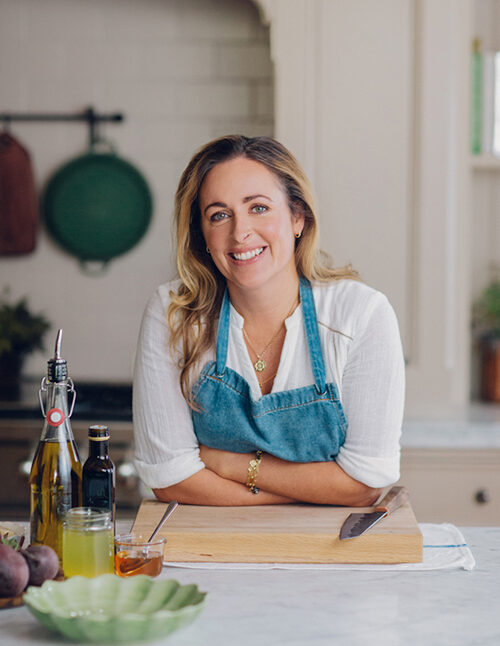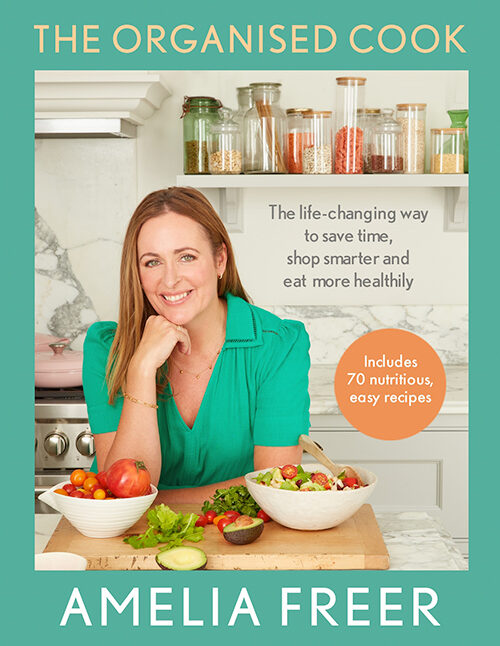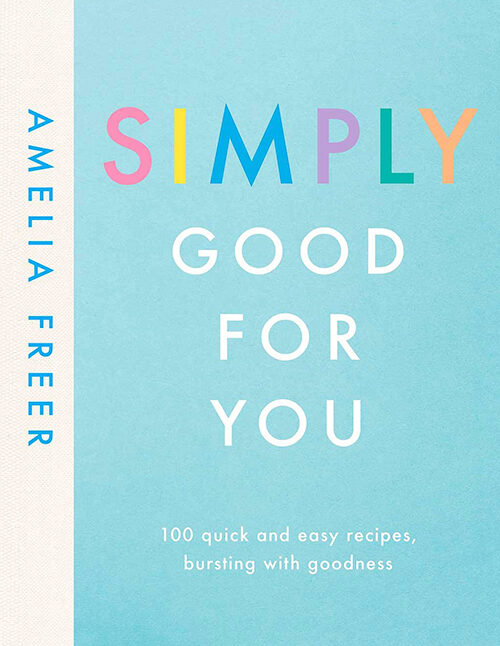16 Simple Ways to Nourish Yourself Through Winter
Oct 2022
The seasons turning, the leaves beginning to fall and the sun waning can bring about a shift in mood for many. It can all feel a bit grey, not just in terms of the weather, but in disappointment that the long, languid days of summer are now behind us, and the most riotous displays of autumn are heading the same way. Post-pandemic, the idea of retreating into our homes again can potentially trigger the old anxieties of lockdown, and the increased isolation that can happen in the colder months is certainly a challenge too. I hope that by acknowledging this together, we can perhaps put a few things in place to help support our mood and wellbeing as we ease ourselves through the colder, darker months ahead.

I therefore wanted to consider a few strategies here that might just help nourish us through these autumn and winter months. I’ve broken them down by category – as I find this is a good way to think through self-care systematically and ensure we offer each key area a little TLC.
I hope you find it helpful too, and that these suggestions might spark a few more ideas that would work well in your unique life.
Mind
Be kind to yourself and acknowledge when things are tough. Don’t be afraid to ask for help, to nurture yourself and to state healthy boundaries. We can only continue to give unconditionally to others when we give unconditionally to ourselves. Consider setting aside and prioritising one or two evenings each week just to rest and relax, however that looks to you.
Find a few things to look forward to and get them penned into your diary. For me, the end of October / start of November means the start of Christmas planning. I love the anticipation almost as much as the Big Day.
Be wary of using social media as your primary form of entertainment or distraction. Set a time limit on your scrolling (you can do this through your phone). Consider even deleting some of your social media accounts if you don’t feel they are serving you, or clean up your social media feed, unfollowing any and all accounts that are triggering or contributing to you negatively. Find ones that simply soothe and delight. For me, that’s a lot of gardening accounts right now.
Have a go at journaling. Writing down how we’re feeling can be very helpful to process thoughts that might be spiraling around our minds. A good ‘prompt’ that I have found helpful is to write ‘How are you doing today?’ at the top of the page and simply write whatever comes into my mind below it. I don’t worry about how much I write, but I invariably feel better for doing it.
Movement
When the weather and light is no longer on our side, it’s so easy to lose motivation when it comes to getting our regular activity. I’ve been there! But movement can be so transformative for our energy and mood. Remember, something is better than nothing. Even a quick walk or 15 minutes of yoga is a great start.
Invest in the right clothing and try your best to get outside regardless of the weather, especially in the morning as the sunlight is helpful to supporting circadian rhythm balance (and therefore sleep).
Aim for a minimum of 150 minutes of moderate intensity activity each week, alongside 2 sessions of strength and flexibility. For me, that means regular brisk walking, and a couple of yoga classes (usually online).
Don’t forget about music. Don’t underestimate the power of music that resonates deeply with to boost motivation and your mood. Play it loudly. Sing along if you can (it tricks you into doing some deep breathing) and dance around the room.
Nutrition
Relish the opportunity to cook comforting, warming dishes and to stock up your freezer with nourishing batch cooking. Think stews, curries, cottage & fish pies, amazing soups and so much more. Cooking even the simplest thing is an act of self-care. Diana Henry said that ‘autumn cooking is not about instant flavours and assemblies of startling contrasts, it’s about layering and waiting’. I love that idea, and I certainly find myself at this time of year turning away from the punchy salads and raw dishes of high summer towards slow-cooked batches, where robust stews and pulses gradually yield into comforting meals with the magic ingredient of time. But if I am going to commit that time (at least in terms of cooking, not necessarily in terms of preparation), then I definitely want it to give more than one meal’s worth of pleasure. So here is a handy collection of my all-time favourite batch cooking meals for fridge and freezer. The very definition of culinary hunkering down. Click here to see all of the recipes.
Vitamin D – Don’t forget the government guidelines recommend that all adults consider supplementing with 400IU vitamin D daily throughout the winter. If you don’t like pills then try this easy spray.
Sleep
Make your bedroom and living room as cosy and inviting as possible. Treat yourself to a couple of good fiction books and give yourself the gift of a few early nights immersed in a story, wrapped in a warm blanket and sipping a relaxing tea.
Invest in a sunrise alarm clock. It has two key benefits: your phone can be left out of the bedroom, and the extra light makes waking up on darker mornings much easier. It’s been a bit of a game-changer for me.
Go easy on the caffeine. Especially if you’re struggling to sleep through the night, or are feeling the physical symptoms of stress or anxiety (such as shakes, palpitations, nervousness, dizziness). Caffeine can make these worse. Don’t go ‘cold turkey’, as this can trigger severe headaches and exhaustion, but gradually reduce your intake over a few days. Shift to naturally caffeine-free alternatives, such as Rooibos or herbal teas instead.
Social Connection
While spontaneous opportunities for outdoor catch-ups might be few and far between now, we can still keep in touch with our loved ones throughout winter to maintain that important social support. Arrange a weekly phone call or walk with someone who lifts you up. Write someone a real-life letter. Arrange to enjoy a drink or meal together. I’ve found the key is to plan ahead so it doesn’t fall off the to-do list with everything else.
Health
As always, I urge you to seek out professional help and support if you feel you would benefit from it. It’s a sign of immense strength to admit when we might need to reach out. Speak to your GP or family doctor if you have any health concerns, or take a look at BACP for local practitioners to support psychological wellbeing.
Watch the alcohol creep! It’s so easy to drink more with these dark evenings to fill, but make sure you’re sticking to max 14 units per week (this is a maximum, not a target!), and give yourself 2-3 days alcohol-free as a minimum. Find some good alcohol-free drinks that you can use in place to provide yourself with the ritual of marking the end of the day, and then think about what you really need to help process your emotions and feelings instead. A chat with a friend? Exercise? A relaxing bath? Meditation? Snuggle up with a good book? A decent meal?
Other Resources
Apps
Creativity
Check out all the brilliant courses on Create Academy. I adored Willow Crossley’s guide to the Fundamentals of Floristry, and Arthur Parkinson’s guide to growing A Spectacular Garden in Pots. For interiors, you can’t beat Rita Konig’s Ultimate Guide to Interior Design.
Supportive / Gentle Podcasts
How to Fail with Elizabeth Day
The Therapy Edit with Anna Mathur
Grow, Cook, Eat, Arrange with Arthur Parkinson & Sarah Raven
Further advice and support:
The Samaritans is there to support you 24 hours a day.
Relate is a great resource for relationship advice and support.
Mind offers mental health support and information.
The National Domestic Abuse Helpline [0808 2000 247] from Refuge is there for anyone experiencing domestic abuse.
The British Association for Counselling and Psychotherapy has a registry of practitioners, many of whom now offer online services.
MORE TO EXPLORE
Please note that the information on this website is provided for general information only, it should not be treated as a substitute for the medical advice of your own doctor or any other health care professional providing personalised nutrition or lifestyle advice. If you have any concerns about your general health, you should contact your local health care provider.
This website uses some carefully selected affiliate links. If you buy through these links, we may earn an affiliate commission, at no additional cost to you. This helps to keep all of our online content free for everyone to access. Thank you.



